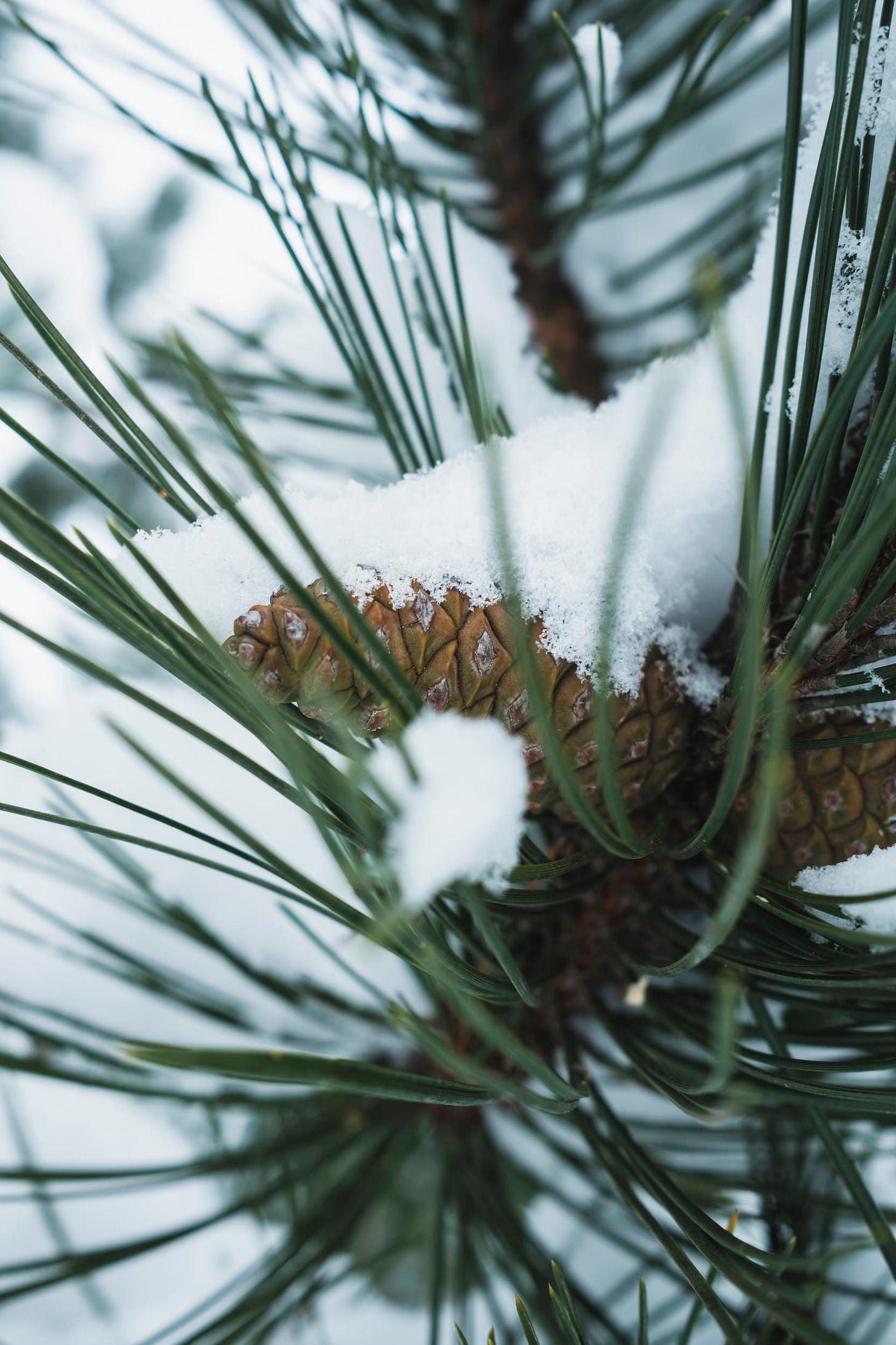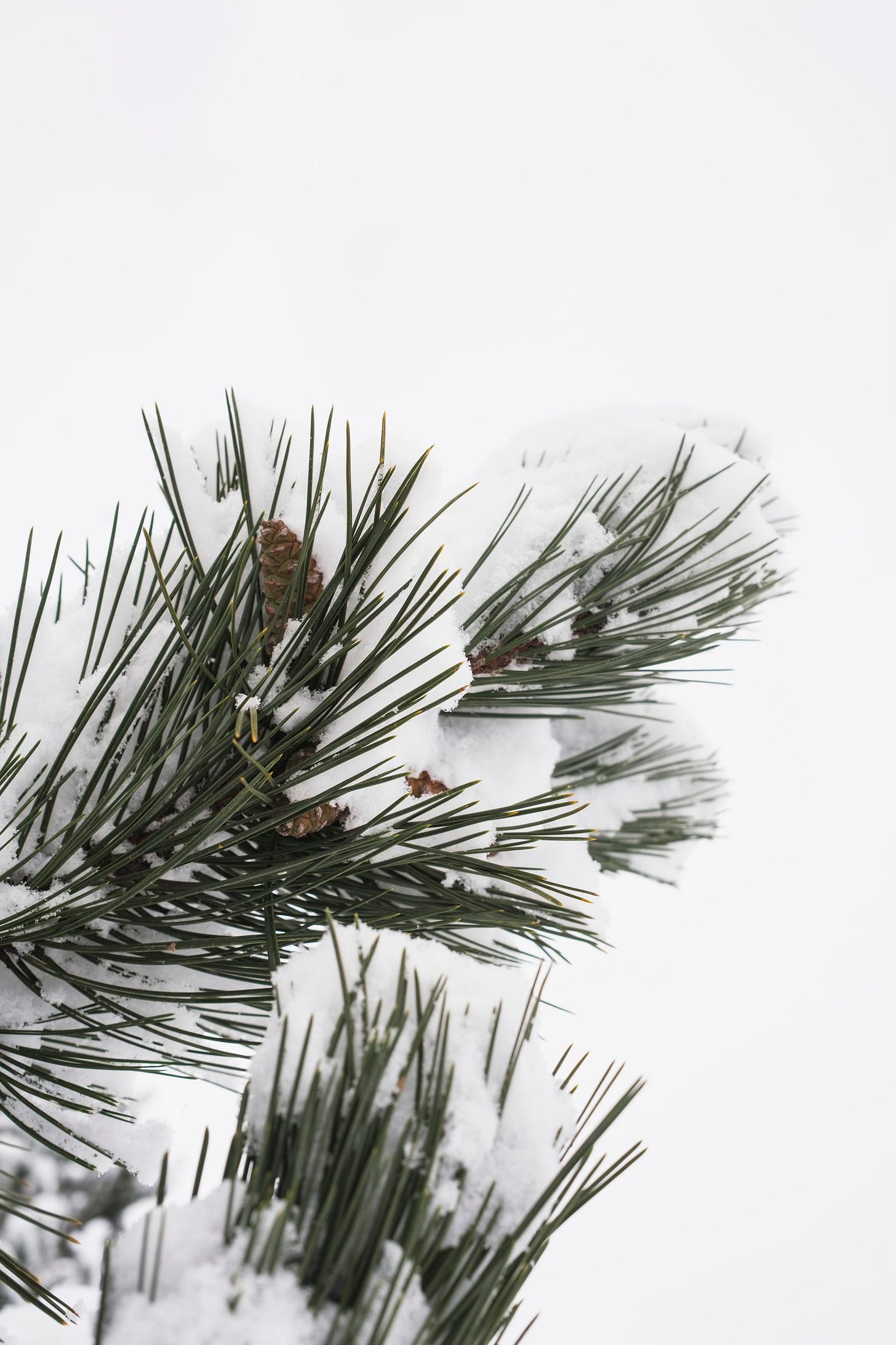Wintering In and Out of the Kitchen
Flemish Stew
It’s nearly winter now in the northern hemisphere. The days are dim and the nighttime sky is inky black and covered in a dense sheet of clouds. The squirrels and chickadees emerge throughout the few lighted hours during the day to forage the remaining berries and seeds in the decaying garden but for the most part the land is quiet. When I stop resisting and allow my own animal body to feel itself in this season I notice the quiet too, the pull to go inward, to deeply rest as the plants and animals do.
In her book, Wintering, (which I re-read every year because I love it so) Katherine May writes:
“Plants and animals don’t fight the winter; they don’t pretend it’s not happening and attempt to carry on living the same lives that they lived in the summer. They prepare. They adapt. They perform extraordinary acts of metamorphosis to get them through. Winter is a time of withdrawing from the world, maximizing scant resources, carrying out acts of brutal efficiency and vanishing from sight; but that’s where the transformation occurs. Winter is not the death of the life cycle, but its crucible.”
The earth's axis and her relationship to the sun signals to the natural world that the time has come for them to take care: to allow the fat that they’ve worked so hard to acquire sustain them through the cold; to go inward to the cave, the den, the warm depths of a mud slick pond. For the garter snake it means surrounding themselves with the warmth of the community in order to survive. Similarly for the honey bee, the colony envelope itself with the heat of one another taking turns moving to the warmth of the center to keep everyone alive and well in this season. The chickadee ventures out into the cold, relying on her memory of bountiful seed sites to keep her diminutive body warm and full. Throughout the season of abundance she’s plotted a map in her mind that lays out the necessary food sources that will keep her sustained through the winter.
It’s in the kitchen where my wintering becomes most instinctual. Following the cue from the earth I slowly simmer the hearty roots and greens, built sturdy to withstand the cold. Maximizing on the warmth the oven is often on, gently breaking down tough cuts of meat through long braises or gently calling forward deeply rooted sweetness from hardy vegetables. My own body craves the fullness and fat of heavier foods that don’t sound appealing in the summer when freshness is in abundance.
There’s a peace that surrounds the quietude of this season if I allow myself the gift of letting intuition and instinct guide. That still-small voice that requires time, space, silence, and practice to listen – all of these being very limited resources in a culture that praises efficiency, effectiveness, noise and even chaos.
Our culture makes few allowances for the change of seasons. Our output, outlook, and behavior are expected to look as they did in winter as they did in summer. Yet, no other part of nature behaves this way. I wonder what would change if we remembered a time when we listened to the sun?
Flemish Stew
This national dish of Belgium was one that was created to use cheap cuts of beef and flat beer. It is hearty, satisfying and quick to throw together; the finished dish is very meaty, has very little liquid and is intensely flavored. If you are out of the house all day, a crockpot works well for this.
This stew improves with a day in the fridge so plan for some great leftovers or make the day before you plan on dating.
Serves 4
1 1/2 lbs beef chuck roast or well marbled stew meat in 1-inch cubes
1 1/2 teaspoon kosher salt, divided
1/2 teaspoon fresh ground pepper
2 tablespoons flour
3 tablespoons unsalted butter
1 tablespoon oil
1 large onion, thinly sliced
3 garlic cloves, chopped
2 cups ale (a Belgian ale works nicely here but today I’m use this beauty this Autumnal Ale I collaborated on)
2 dried bay leaves
1 tablespoon chopped fresh parsley
1 teaspoon fresh thyme leaves
2 tablespoons red wine vinegar
2 tablespoons brown sugar
1 tablespoon Dijon mustard
Sprinkle the beef with 1 teaspoon salt, pepper and flour. Toss to coat.
Add butter and oil to a large pot or dutch oven over high heat. When butter has melted and bubbled and the pan is very hot add the meat, cooking in two batches, to not crowd the pan. Cook for 5 to 6 minutes, turning over halfway through, until deeply browned on both sides. Remove meat and set aside. Reduce heat to medium low and add onions and 1/2 teaspoon of salt. Cook for 8 to 10 minutes until golden and tender, stirring occasionally to scrape up the deeply flavored bits on the bottom of the pan while the onions sauté. Add garlic then cook 2 minutes more.
Place the meat back in the pot and add beer, herbs, vinegar and brown sugar and bring the stew to a simmer over low heat. Place a wooden spoon in the pot and cover, allowing the lid to rest on the spoon handle, leaving a 1/2-inch gap. Simmer on the stovetop for 3 hours or until the meat is tender.
Alternatively, you may cook in the oven, mostly covered at 325° F for 3 hours.
To finish, stir in the Dijon mustard and add salt and pepper to taste.
Stew can be made up to two days ahead and warmed over low heat on the stovetop.




This is lovely—I think it might be dinner for tonight. And Katherine May is so wonderful—
I read Wintering for the first time this last March and I still think about it often. Thank you for this post and the invitation to re-read my favorite words from it.
"Winter is a quiet house in lamplight, a spin in the garden to see bright stars on a clear night, the roar of the wood-urning stove, and the accompanying smell of charred wood. It is warming the teapot and making cups of bitter cocoa; it's stews magicked from bones with dumplings floating like clouds. It is reading quietly and passing away the afternoon twilight watching movies. It is thick socks and the bundle of a cardigan."
"Here is another truth about wintering: you'll find wisdom in your winter, and once it's over, it's your responsibility to pass it on. And in return, it's our responsibility to listen to those who have wintered before us. It's an exchange of gifts in which nobody loses out."
"When I started feeling the drag of winter, I began to treat myself like a favoured child: with kindness and love. I assumed my needs were reasonable and that my feelings were signals of something important. I kept myself well fed and made sure I was getting enough sleep. I took myself for walks in the fresh air and spent time doing things that soothed me. I asked myself: What is this winter all about? I asked myself: What change is coming?"